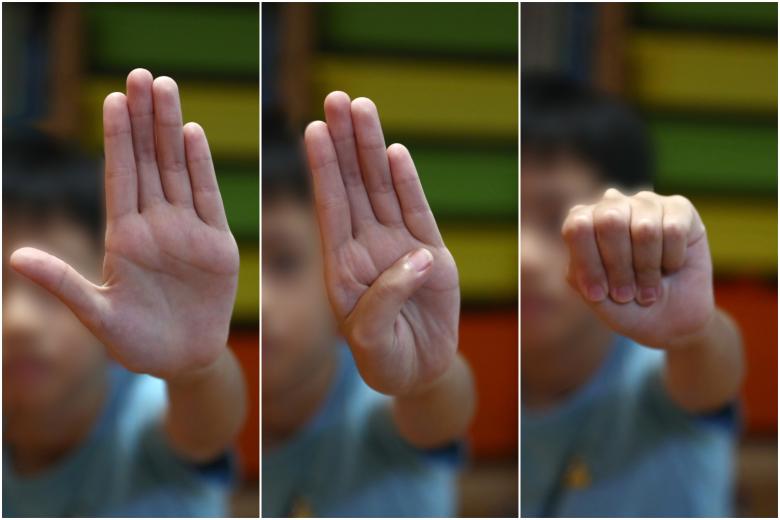SINGAPORE - Over the past year, the Covid-19 pandemic has made it harder for children who are victims of abuse to seek help, as home-based learning and more time stuck at home have limited their social interactions.
It is more important now than before to let children know about non-verbal ways to ask for help, said social workers at a symposium about child abuse on Thursday (Nov 11).
Singapore recorded the highest number of child abuse cases in a decade last year, with the Ministry of Social and Family Development's (MSF) Child Protective Service receiving more than 5,200 inquiries and conducting over 1,300 investigations.
Participants of the symposium, organised by Casa Raudha, shared their struggles in trying to help children facing domestic abuse.
Casa Raudha is a charity organisation that advocates against domestic violence and runs a crisis shelter for women and children.
They said that during Zoom calls to check on the children's welfare, the young charges were too scared to speak up about what they were facing as their parents or caretakers would be in the room. Previously, it was easier to reach these children directly in their schools.
Minister of State for Social and Family Development Sun Xueling shared that MSF's Break the Silence campaign will adopt a hand signal as its new logo from this month to reflect one possible non-verbal cue victims can use to get help.
The Signal for Help gesture was developed by the Canadian Women's Foundation. It is done by first holding one hand up with the thumb tucked into the palm, and then folding the other four fingers down over the thumb.
Ms Sun said: "Our worry is that when we do not see the children, we do not know what is happening to them. And in a Covid-19 environment, our social workers sometimes are not able to pay house visits, and they perhaps will interact with these children through videos."
She added that this signal will be a way to seek help for those who cannot safely verbally express themselves.
"You can do this (signal) in front of you. It says: 'Help'," she said.
The signal made its rounds on social media and news outlets when a 16-year-old girl in the United States was saved from her abuser after flashing the signal to passing cars earlier this month.

Guest speaker Razwana Begum Abdul Rahim, a senior lecturer at the Singapore University of Social Sciences, said the pandemic has made home a dangerous place in households where there is stress from unemployment, financial difficulties and untreated mental health issues.
"Despite the advancements in our policies, legislation and practice, our children are not safe," she added.
"As (social) workers, we have been challenged to rise above and beyond to help now."
Ms Shahrany Hassan, chairman of Casa Raudha, said that more than 50 per cent of the residents at the organisation's crisis shelter are children who came with their mothers. The shelter is for women and children who face domestic violence.
"These children experienced or witnessed abuse at an early age, which is why our childhood educators are critical in terms of being the touch point for a child to seek help," she added.
The second session of the symposium in the afternoon saw speakers such as Dr Mohammad Hannan Hassan, vice-dean of Muis Academy, touch on outreach campaigns for the Malay/Muslim community to raise awareness of domestic abuse.


